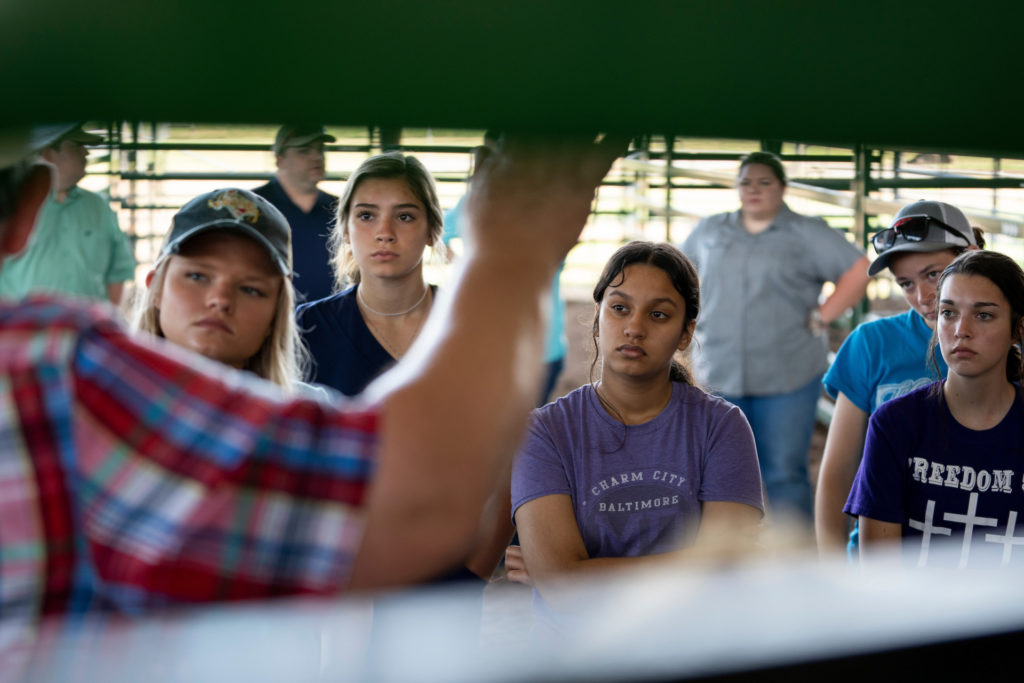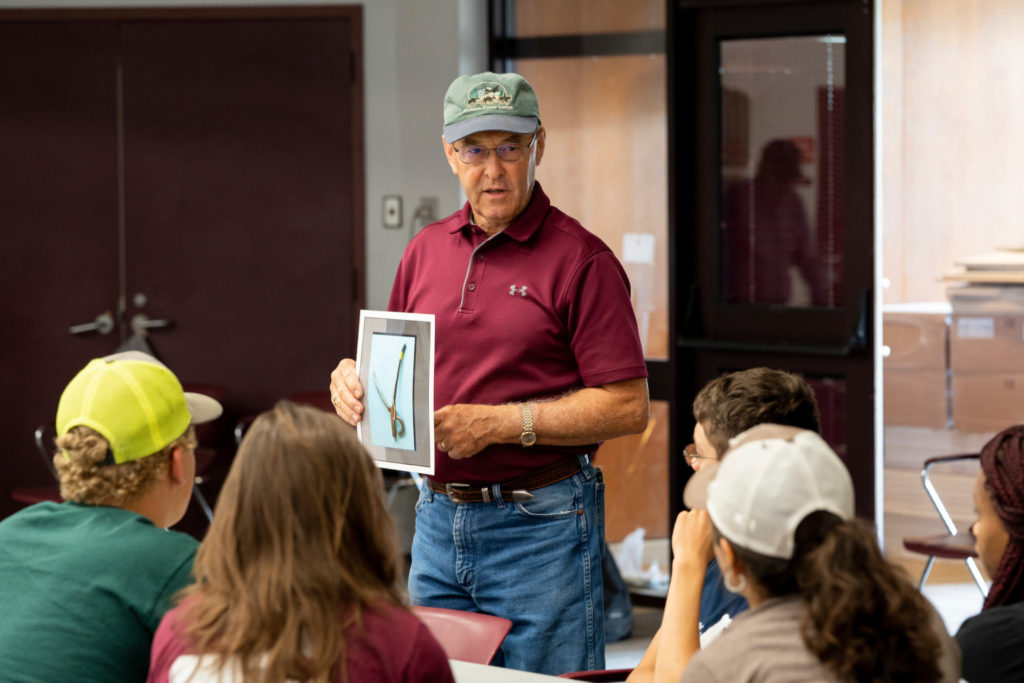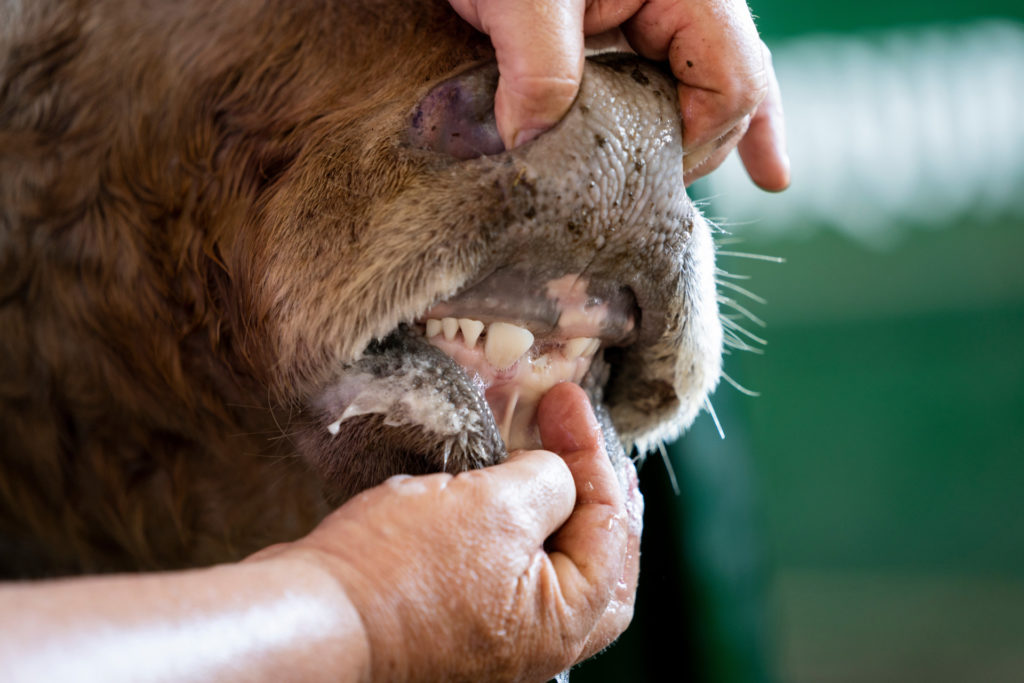Youth step into the world of a veterinarian
AgriLife Extension camps give ‘hands-on’ experience to future professionals
More than one kid has wrapped the leg of their “understanding” pet, pretending to be a veterinarian. But to help move this game of pretending to a profession in later years, the Texas A&M AgriLife Extension Service created the 4-H Veterinary Science Camps.

The goal of the 4-H Veterinary Science Camp is to provide experiential learning opportunities for students participating in the Veterinary Science Certificate Program, VSCP, where they can learn basic clinical skills for small animal and large animal veterinary medicine under the direction of a veterinarian.
More than 275 youth applied this year from 11 states and one territory for the opportunity to participate in one of the three-day camps, and only 75 spots were available, said Tyler Vogel, AgriLife Extension program specialist in the Department of Animal Science within the College of Agriculture and Life Sciences and one of the event’s facilitators.
“These camps are an event that can provide hands-on veterinary experiences to those students who have said since they were 6 years old that they want to be a veterinarian when they grow up,” said Susan Culp, DVM, AgriLife Extension veterinarian and event facilitator in the Department of Animal Science. “These camps have given the kids, especially those from urban areas with little livestock experience, the opportunity to experience things that maybe they have never had the opportunity to experience. These kids desperately want the hands-on opportunities with animals.”
Expanding the camp opportunities
The first camp was in 2014, when Joe Mask, Ph.D., the AgriLife Extension youth veterinary science specialist at the time, felt youth going through the certified veterinary assistant curriculum needed something more.

The first camp was hosted at Texas A&M University in conjunction with 4-H Roundup to allow the youth to go through the camp and then compete at the Skillathon. This path was followed for two years before a second camp was added at West Texas A&M University, WTAMU, in Canyon.
In 2018, Vogel was hired, allowing for the expansion and growth of the program. And in 2019, a third camp was planned in partnership with Christine Hoskinson, a licensed veterinary technician and assistant director for the Veterinary Technology Program at the Texas A&M University-Kingsville.
“Christine hit the ground running, planning for the 2020 camp, but then COVID-19 happened, and the first camp that was scheduled there was canceled,” Culp said. “This year, we are holding all three camps for the first time: June 7-9 in Kingsville, June 14-16 at College Station and July 12-14 at WTAMU.”
Camper selection
The camps are aimed at junior high and high school students, Vogel said. These students gain access to hands-on veterinary skills taught by industry leaders in education, animal science and veterinary medicine. Initially, they were only open to 4-Hers.
This year, though, he said they opened it to all students 13-18 years old and not just from Texas, as the camps are rapidly becoming a signature event and garnering far greater interest than camper spots available.
“Because there is so much interest, we’ve developed a blind application process, and campers are selected and assigned to a camp, based on their answers to their questions,” Vogel said. “It’s very objective to recognize the students who are very interested in the information and animal experience.”
The camps are 90% veterinary science-focused, with the remainder being certifications in Beef Quality Assurance, BQA, and Pork Quality Assurance Plus, PQA Plus, he said.
“We want these students to understand why we do the things we do. We also talk about animal welfare and animal rights; the goal is to make sure these kids know why these are important issues, what the truth is, and how they can help defend against misinformation.”
Skills learned in the 4-H Veterinary Science Camp
Students attending camp deal with a variety of animals, including livestock and smaller animals, Vogel said.

When studying cattle, they learn about chute safety, cattle handling, physical exams, dystocia, pulling calves, large animal instruments and when and how they are used. The equine portion discusses how to safely interact with horses, stalls, leg bandaging, physical exams, aging and injections.
When students move to the small animal side of things, the camp uses stuffed animals to allow them to learn how to interact with clients, ask the right questions, conduct physical exams, use small animal instrumentation, and discuss fecal examinations and why they are necessary.
In addition to the three-day overnight camps, two one-day camps were offered in El Paso on June 30 and July 1 that attracted another 59 youth.
“This is the first time that we are expanding our footprint out to the El Paso area,” Culp said. “The one-day camps provide both large and small animal experience and veterinary skills lessons, but also offer a different keynote speaker each day, focusing on advocacy and leadership.”
Culp said that the reception from the entire El Paso veterinary medical community has been overwhelmingly positive, and she hopes that they can return to El Paso every year, possibly even offering more opportunities in the future.
Determining a path forward
These camps can help youth make better-informed decisions about a career path in the veterinary profession, and it helps them make that decision sooner, Culp said.
“These camps are so formative to the participants’ lives. We wish we had the staffing to offer 10 or more veterinary science camps every year, as the demand is certainly there.”


